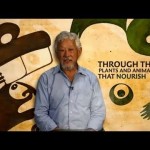Climate change denial isn’t about science, or even skepticism.
by David Suzuki
Lets' suppose the world's legitimate scientific institutions and academies, climate scientists, and most of the world's governments are wrong.
Maybe, as some people have argued, they're involved in a massive conspiracy to impose a socialist world order. Maybe the money's just too damn good. It doesn't matter. Let's just imagine they're wrong, and that the polar ice caps aren't melting and the climate isn't changing. Or, if you prefer, that it's happening, but that it's a natural occurrence — nothing to do with seven billion people spewing carbon dioxide and other pollutants into the atmosphere.
 |
|
It's all about protecting corporate profits and interests.
|
|
Would it still make sense to continue rapidly burning the world's diminishing supply of fossil fuels? Does it mean we shouldn't worry about pollution?
We could pretend global warming isn't happening, or that humans aren't a factor if it is. That would be crazy in the face of overwhelming evidence to the contrary, but even if it weren't, there would still be no reason to continue down the road we're on. Energy is at the heart of modern society's needs, but when the source is finite, it seems folly to be hell-bent on using it up in a few generations, leaving the problems of depletion and pollution to our children and grandchildren. The longer we delay implementing solutions to our energy challenges the more costly and difficult it will be when we have to face the inevitable.
So, why do so many people insist that we remain stuck with outdated and destructive systems and technologies? Why do so many try to throw roadblocks in the way of progress and solutions? And what can we do about it?
Many books and studies have addressed the first two questions, including Merchants of Doubt by Naomi Oreskes and Erik Conway, and Climate Cover-Up, by James Hoggan and Richard Littlemore. Those show that huge sums of corporate money have been spent on campaigns to sow doubt and confusion about issues ranging from the dangers of smoking to threats to the ozone layer to climate change. It's all about protecting corporate profits and interests. That doesn't explain why so many ordinary people buy the industry spin, but a number of theories have attempted to shed light on that phenomenon.
What's important, though, is for those of us who rely on facts rather than spin to look at solutions. We can all do much more to reduce our environmental footprints, but the problem has grown so much that large-scale efforts are needed, and many of these must come from decision-makers in industry, government, and academia. However, there appears to be reluctance in some of those circles to act unless the public demands it. And so it's up to all of us to become informed. Then we can hold our leaders to account and challenge those who refuse to see the big picture.
This public responsibility is especially important in light of stepped-up efforts to deny the reality of climate change or the role humans play in it. Cases in point are illustrated by the "denialgate" scandal revealed by the release of Heartland Institute documents and the revelation that Ottawa's Carleton University hired Tom Harris, a PR man for a number of "astroturf" groups with a mechanical engineering background, to teach a course on climate change.
There are many credible sources of information, and they aren't blog sites run by weathermen like Anthony Watts or industry-funded fake science organizations. One place to start is at skepticalscience.com. Click on the tab that says "Arguments" for scientific responses to all the main climate change denier talking points.
Another great rebuttal to the deniers came in a recent article in the New York Review of Books by Yale University economics professor William D Nordhaus. He said his article, "Why the Global Warming Skeptics Are Wrong", was "primarily designed to correct their misleading description of my own research; but it also is directed more broadly at their attempt to discredit scientists and scientific research on climate change."
The misrepresentation of Nordhaus's research is typical of the Orwellian doublespeak deniers employ. Scientists and researchers are calling them on it.
Armed with credible information, we can challenge those who misrepresent science and spread confusion. If nothing else, we'll be able to breathe easier!
Written with contributions from David Suzuki Foundation Editorial and Communications Specialist Ian Hanington
References
Implementing solutions to our energy challenges
Merchants of Doubt
Climate Cover-Up
Why so many ordinary people buy the industry spin
Heartland denialgate
Ottawa's Carleton University hired Tom Harris
Astroturf groups
Skeptical Science "Arguments"
Nordhaus article


